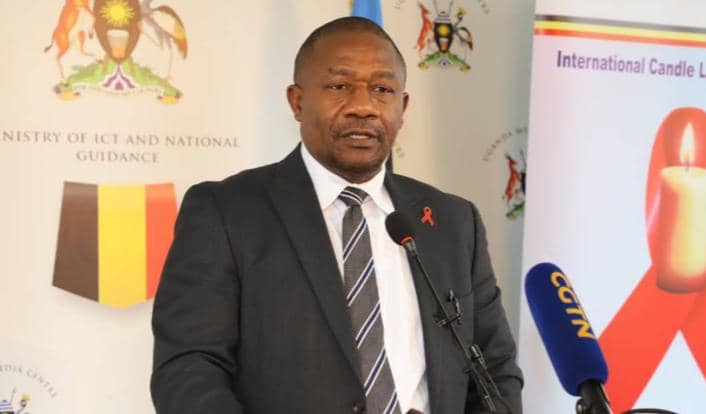
 Tiger FM
Tiger FM

 Tiger FM
Tiger FM
30 April 2025, 12:15 pm
By Ronald Ssemagonja
Uganda is one of the countries in Africa and globally that has made significant efforts to combat the spread of HIV/AIDS over the past 15 years. After being discovered in 1982 in Rakai District and officially recognised as a national health problem in 1986, the government has implemented several initiatives and programmes to curb the spread of the pandemic, which has left many people orphaned, widowed, and affected in other ways.
In this context, Uganda will commemorate International Candlelight Day on 16 May 2025, under the theme “Ending AIDS by 2030: Building a Sustainable HIV Response.” The event will take place at the Uganda AIDS Commission headquarters in Ntinda, Kampala, with the Minister for the Presidency, Hon. Milly Babirye Babalanda, expected to be the chief guest.
Dr. Vincent Bagambe, the representative of the Director-General of the Uganda AIDS Commission, addressed the media at the Uganda Media Centre in Kampala, where he informed the public about the country’s progress in the fight against HIV/AIDS. “Uganda has 1.49 million people living with HIV/AIDS. Each year, we see about 38,000 new HIV infections—close to 1,000 per week—and nearly 20,000 HIV-related deaths annually. It is important to note that the majority of people living with HIV are young girls aged between 15 and 24. Of the 1.49 million people living with HIV, 92% know their status and are on medication,” he explained.

According to the Uganda AIDS Commission, this day is one of the longest-standing events in the history of the fight against HIV/AIDS. “This day provides an opportunity for communities to stand with families who have lost loved ones to HIV. We believe that the media will help mobilise the community to stand in solidarity with those who have lost their loved ones to the virus. The event also offers us the chance to raise awareness that HIV is still with us. We will hold medical camps at Ntinda Market, Nakawa Market, and at Constitution Square,” she added.
The UNAIDS Country Director, Jacqueline Makokha, commended Uganda for its efforts in combating the pandemic. “It is encouraging to see the progress Uganda has made. A large number of people now know their status, which is a significant achievement compared to those who are unaware. It is also positive that the majority of Ugandans are HIV-negative,” she said, urging the government to continue the fight.
Additionally, the Chairperson of the Uganda AIDS Commission, Canon Dr. Ruth Senyonyi, recalled that many years ago, people living with HIV in Uganda were suffering from stigma, even from close family members and communities, but this has significantly decreased. “The purpose of this day is also to remember those family members we lost to HIV. Our request is that HIV stigma and discrimination are addressed at the individual, community, and national levels in order to create a stigma-free environment for people living with HIV,” she said.
The Chairperson confirmed that the government is continuing to provide free medication to people living with HIV, and she urged individuals to visit health facilities to access these services at no cost. She also reassured the public that there are sufficient supplies of ARVs in stock, despite financial challenges.

“People should be free to visit clinics without being singled out as different or doing something they shouldn’t be doing. The government urges people living with HIV to continue accessing HIV services for free,” she said.
Sylvia Namigade, a young person representing those living with HIV, urged young people to abstain from sex until marriage. However, she advised individuals to get tested for HIV multiple times before engaging in any sexual activity. Paul Achaye, a youth representative, called on the government to provide more funding to the Uganda AIDS Commission, as they are doing excellent work.
This day was first celebrated in 1983.